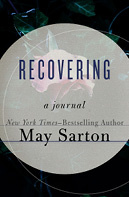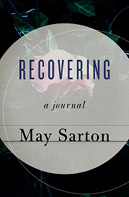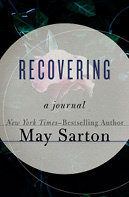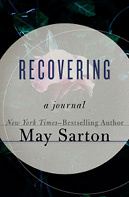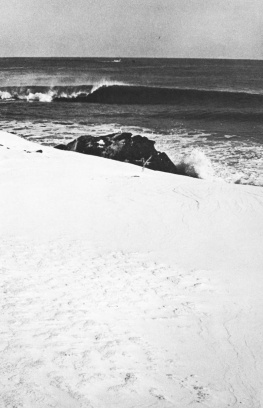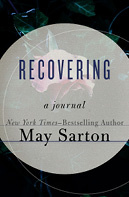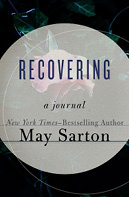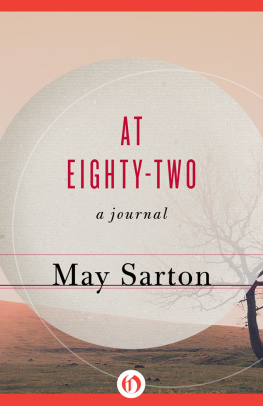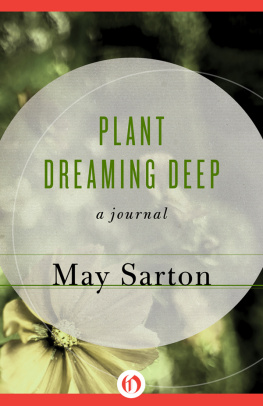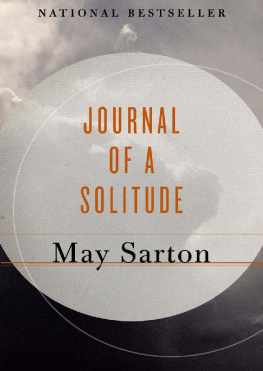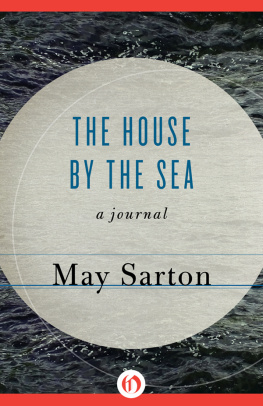Endgame
A Journal of the Seventy-Ninth Year
May Sarton

To Nancy Hartley
who has worked with me for
thirteen years as secretary,
librarian, and devoted friend
of the work.
Hail and farewell!
Preface
I always imagined a journal that would take me through my seventy-ninth year to meet my eightieth birthday at its end. I had imagined a philosophical journal, dealing with the joys and problems, the doors opening out from old age to unknown efforts and surprises. I looked forward to the year as a potent harvest.
I could not foresee that I would struggle through it with constant pain and increasing frailty. I lost fifty pounds, could not garden at all, and by Labor Day could no longer type. I kept believing that I would feel better in a month, in two months. But by late March I was facing the likelihood that I might never feel better. There appeared to be no future.
What was wrong? First, the fibrillating heart; second, the lining of my left lung filled up with fluid and made breathing difficult (it has to be drained about every three months); third, the cause of my despair: irritable bowel syndrome. That is what gave me six to eight hours of acute pain every day. I was hospitalized two or three timesto no avail. Doctors could only prescribe painkillers: Tylenol with codeine. It helped but did not cure, of course. The M.D.s are not interested in chronic pain; my general practitioner never even suggested diet.
After four months, on Labor Day, September 3, it was clear that I could no longer type, and with Susan Shermans and Nancy Hartleys help I began to dictate into a cassette recorder that Nancy transcribes. I wish I could say that my dictation produces such subtle and complex results as Henry Jamess did at the end of his life, but it is not at all like that, alas!
I have been correcting and rereading the dictated text these past weeks and at first was dismayed. Often there is no sentence structure. I can mend that, of course, but there is always the problem of how much about illness itself is relevant. How boring can I be? How self-enclosed in pain? More important, the style in this journal does not have strong imaginative images. Poets think in images, I have always said, but since the stroke something is locked up in the subconscious now. Since the stroke five years ago, I cannot listen to records because they open the locked places and then unstoppable tears flow.
Should I publish this journal at all? What value does it have, coming from a diminished old Sarton? I hope I am right in thinking that flawed though it is, it does have value, if only in suggesting how one old lady has dealt over a year with chronic pain; what the rewards are of living here by the sea, even old and ill; how I have had to learn to be dependent. Perhaps this Endgame will give some comfort to fellow sufferers.
For me it has been a lifesaver, and I am going on now with one more journal, which I began the day after my birthday, because I need to sum up and, in a way, discover what is going on around me and inside me.
Life would seem empty and without purpose without it.
M AY S ARTON
June 3, 1991
Thursday, May 3, 1990
My seventy-eighth birthday. Its hard to believe I am still around to be glad the sun is out at last and the daffodils crowding the woods edge with abundant grace, all things moving toward opening and flowering after the imprisoning winter we have somehow survived. To write these few stumbling words is an event for me, as the months of illness caused by my fibrillating heart have meant putting a stop to any writing at all. Even a postcard has become a Herculean effort, which I think about in bed around five when Pierrot, the gorgeous Himalayan, decides it is time to go out. I let him out and go back to inventing a wonderful postcard, which rarely gets written, because by the time I have put out the bird feeder, watered the plant window, made my breakfast and washed up after it, made my bed, and dressed, my little store of energy has vanished.
Is that the truth or is the truth that the side effects of the medicines prescribed for my heart blur my mind in some way? I never feel fully awake, alive to the tremor of wind, except at night when the ecstatic peeping of the frogs prevents sleep but is so welcome, so thrilling after the silent winter, that I am glad to listen for hours.
I always imagined I would begin a last journal on this birthday, but when I tried as an experiment after Christmas and again near Easter, it was clear that the curious connection between what goes on in the head and its expression in words was simply not working. This is scary even when CAT scans show no brain damage and I am assured by the doctors that all is well. Only, says wonderful Dr. Petrovich, your heart is very, very tired and has also lost strength in the past year. So I am to settle, or so it seems, for a semilife, or the life of a semi-invalid. This has been the struggle of the last months, to learn to accept that my life as a writer is probably over and to learn to accept dependence.
Friday, May 4
Another blue sky, another real spring day. We are right to tremble, as it will rain again tonight and all day tomorrow when the friends I think of as family, Anne Woodson and Barbara Barton, come for champagne and lobster rollsa feast reduced to the minimum, as all things must be these days.
But as I write this I smile, for my birthday yesterday could hardly have been called austere or in any way diminished, trucks driving up every hour or so with extraordinary gifts of plants and flowersone of these, two towering stems of white orchids, making together an orchid tree, which I lie under like an East Indian princessthese from dear extravagant Susan Sherman. Maggie Vaughan came bringing a delicious lunch of shrimp, salad, and her special strawberry sherbet with marinated strawberries and homemade cake, so I could lie on my chaise and answer phone calls and drink a whiskey sour. And among the more than six hundred cards and letters that had accumulated since last week I found that Polly Starr had copied out the following passage from Teilhard de Chardin, which hit me like an arrow to the heart, so exact is it for my present state:
This hostile force that lays him low and disintegrates him can become for him a loving principle of renewal, if he accepts it with faith, while never ceasing to struggle against it. On the experimental plane, everything is lost. But in the realm of the supernatural, as it is called, there is a further dimension, which achieves a mysterious reversal of evil into good. Leaving the zone of human successes and failures behind him, he accedes by an effort of trust in the greater than himself to the region of suprasensible transformations and growth. His resignation is no more than the thrust which lifts the field of his activity higher.
There is a time for growth and a time for diminishment in the lives of each one of us. At one moment the dominant note is one of constructive human effort, and at another annihilation.
All these attitudes spring from the same inner orientation of the mind, from a single law which combines the twofold movement of the natural personalization of man and his supernatural depersonalization.The Divine Milieu
I have had The Divine Milieu by my desk (in a revolving bookcase with other treasures) but have not opened it to reread for years, so Pollys copying it came like a presentkey to a door that has been closed for months. It is enough to copy it out myself for the day and to affirm what Sheri, the visiting nurse, who came to give me a sponge bath today, told me: Youre getting better and I can tell because you smile, and you didnt when I first came.
Next page
